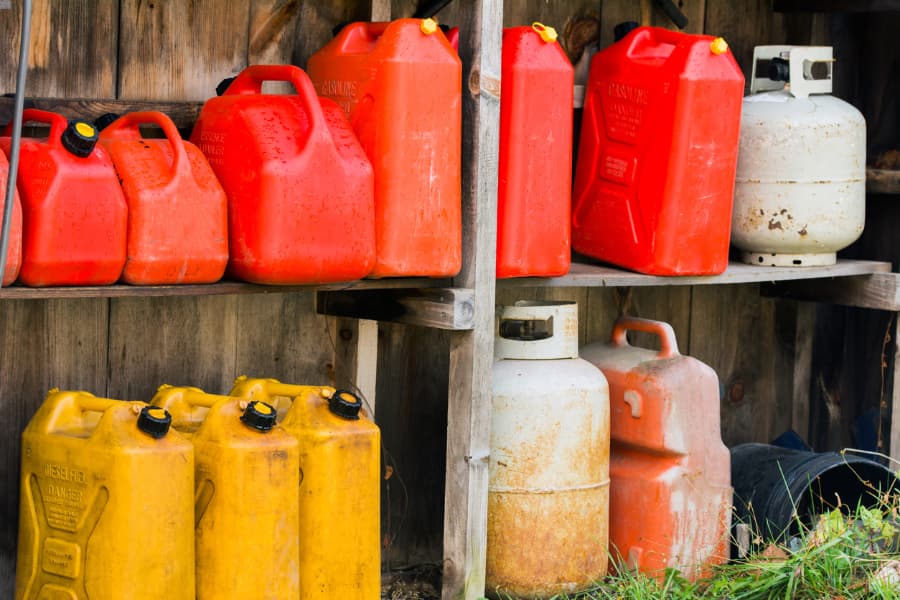
- May 31, 2020
- By cliftonrt46selfstorage
Self-storage policies are in place for the safety and protection of people and property. These policies often include prohibiting you from storing certain items in your storage unit that are considered detrimental to public safety. Most banned items could explode, catch fire, or otherwise cause harm. To ensure you’re not storing a potentially dangerous item in your unit, always read the self-storage policies thoroughly and consider the following tips.
Anything Explosive Or Flammable
Any items that might explode or catch fire are almost always included in self-storage policies as part of the prohibited items list. Explosive, flammable, and combustible materials tend to be very unstable, and spikes in temperature could make these items even more dangerous. Never store the following things in your self-storage unit:
- Firearms, including antique guns
- Ammunition
- Dynamite or explosives
- Fireworks
- Gasoline or anything containing gasoline
- Propane tanks
- Kerosene lamps
- Lighter fluid
- Paint, paint thinner, and paint remover
- Linseed oil
- Grease and oil
- Aerosols, such as cooking or hair spray
- Fertilizers
Self Storage Policies Against Other Hazards
Besides the above items, anything that’s corrosive, potentially noxious, toxic, or otherwise hazardous will also make the prohibited items list. Most of these listed items are clearly dangerous, but some items aren’t as evident as others. For example, some cleaning chemicals are harmful if improperly stored, so they’re often included in self-storage policies. Follow the rules, and don’t store:
- Asbestos or anything containing asbestos
- Radioactive or toxic waste material
- Acid, including car batteries and drain cleaners
- Poisonous or corrosive waste, including old batteries
- Ammonia, bleach, cleaning products
- Insecticides and pesticides
- Roofing tar
- Biological waste, including needles and syringes
- Illicit drugs and medications
Anything Alive Or Perishable
It’s inhumane to keep an animal inside a storage unit, and it’s against self-storage policies and the law. You can’t keep anything alive or previously alive in storage, which also includes plants. Anything that requires food, water, or light to live is strictly forbidden in all storage units. Storage units don’t provide appropriate ventilation and are prone to extreme temperatures, which would be very detrimental to the well-being of an animal or plant. Besides having your rental rights revoked, keeping any animal in a storage unit could lead to criminal charges for animal cruelty.
Along these same lines, you can’t keep anything perishable either, which includes any type of food, whether it’s for people or animals. Food eventually goes bad and produces noxious odors, while also attracting various insects and rodents. After entering your storage unit to get to the illegally stored food, bugs, mice, and rats often move in permanently. They’ll ruin your belongings and may eventually infest the entire facility.
Spoiled food and dead plants also begin to grow mold, which presents its own health hazard. Anything susceptible to mold, mildew, or bacteria won’t be allowed, which includes any wet items.
Contact The Self Storage Experts In Clifton, New Jersey
You also can’t store anything that’s illegal or stolen, and it’s against the law to live or work in a storage unit. Other items may also be deemed inappropriate by management or staff members.
Our professional, knowledgeable staff at Clifton Rt. 46 Self Storage in Clifton, New Jersey, are here to ensure every one’s safety and well-being. We provide a full list of prohibited items when you rent your storage unit. If you’re ever unsure whether an item is allowed, please contact us at 973-772-1300 or speak to our on-site management team. When you’re ready to rent your next self-storage unit, give us a call or reserve a unit online today.

